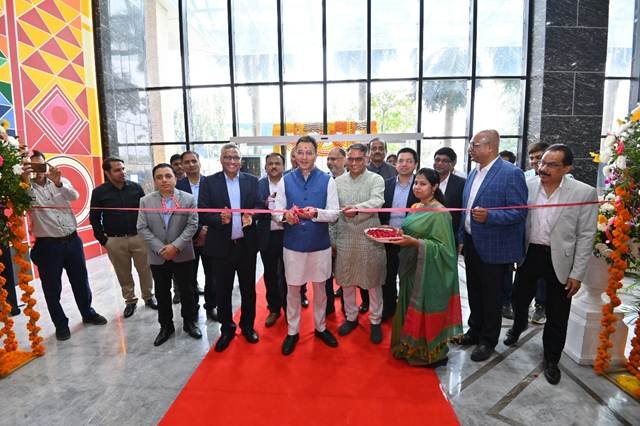India has 775 million internet users, says Gupta
Digital economy has the potential to bring 90% of the informal sector to the formal one, and to achieve that, India needs have a strong digital infrastructure in place, Dr. Amar Patnaik, Member of Parliament, said at the release of a research report along with The Dialogue, titled ‘Enabling a Trillion Dollar Digital Economy’, at a virtual event held on 26 Feb 2021.
He opined that there is also a need to incentivize the private sector to ensure a greater level of participation.
“Through digital technology, one can ensure that improved banking services can be provided in most villages. It can also help in the distribution of the talent pool in all areas, which is restricted only to urban cities and towns now,” he pointed out.
Dr. Patnaik also highlighted the need to ensure that people from the most remote corners of the country have access to the internet.
The report was released by ASSOCHAM virtually.
“The importance of digital technology can be understood during the time of the pandemic. If most of us are sitting at home and still be connected to get our work done, then it means a lot of work has gone in doing so,” elaborated S.K. Gupta, Secretary, TRAI.
While congratulating the telecom workforce for keeping people connected during the pandemic, Gupta informed that till the month of December 2020, there were around 1.15 billion mobile phone users in the country.
“Around 775 million users in India used internet facilities. The sector has shown remarkable growth in the last 5-6 years. We have already gained the distinction of being one of the highest consumers of mobile data in the world,” he said, pointing out that the telecom sector directly contributes around 6.5% to India’s GDP, however its indirect contribution would be in the range of 30%.
He underlined the need to create an online digital permission framework to facilitate industry for greater participation.
There has been a huge reduction in the transaction cost using digital technology. “Earlier for the verification of documents, there was a cost incurred to the tune of Rs.300-Rs.400, now through Aadhar enable e-verification, the costs have come down to just Rs.2-3 which is indeed remarkable,” said Jyoti Arora, Special Secretary & Financial Adviser, Ministry of Electronics and IT.
She explained that digital technology has also given a huge boost to several sectors including banking. “The UPI payments in the month of January 2021 have witnessed 2.3 billion transactions worth US$4.3 trillion.
“Emerging technologies in sectors like agriculture can do wonders. As the use of precision technologies using drones can help double the farmer’s income.”
“Digital technology ensures that sectors like education and health care continue to perform with full efficiency. Through online education and tele-health services, people living even in remote corners of the country use these services. However, a lot more needs to be done to bridge the digital divide,” said Anita Praveen, IAS, Additional Secretary, Department of Telecom.
There is a need to fast track setting up of digital infrastructure in the country. “There is a need to increase investment in infrastructure to ensure that the internet travels to the last mile in the country and expand the base beyond one billion users,” said Kazim Rizvi, Founding Director, The Dialogue.
He also added that there is a need to increase collaboration and partnership with like-minded countries to help the country achieve an 8-10% growth rate.
ASSOCHAM Secretary General Deepak Sood pointed out that this pandemic has also accelerated the digitization rate, which may have lasting impacts on our life and the economy.
“Our digital infrastructure needs to be enhanced to tackle this phenomenon. Commitment and urgent actions to promote long term growth of the digital economy that are required to improve the health of the industry and the investments in the digital infrastructure,” he said.
P. Balaji, Chairman, National Council on Digital Communications, stated that a data-driven economy like India demands continuous cycles of investment, particularly to meet the vision of a ‘Trillion Dollar Digital Economy’.
While Telecom is the foundation of the digital revolution, equally important are the platforms, apps, content among others, stressed Balaji, emphasising the need for a collaborative effort to grow the digital economy.
“The digital ecosystem is interlinked and interconnected. Success of the digital economy depends upon each and every component of the ecosystem,” he said. #economy #digital #telecommunications #technology #IT /fiinews.com









